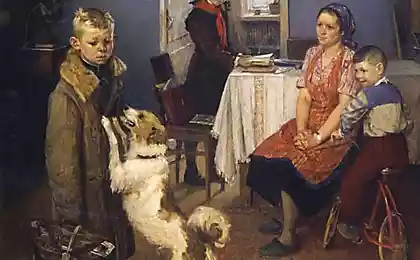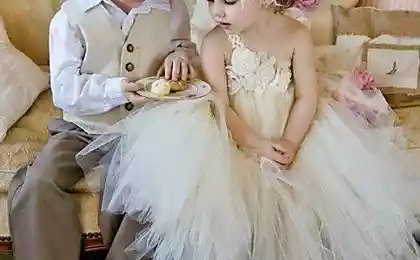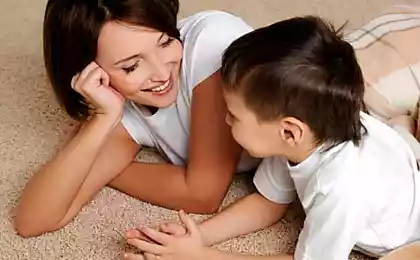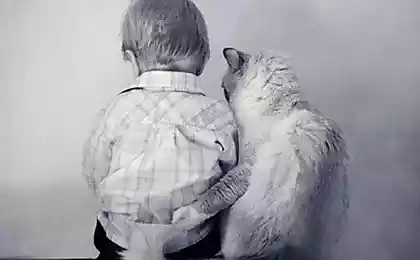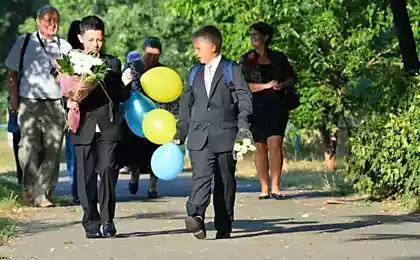379
Children no longer obey their parents, if you do not recognize good actions
When children disobey, the parents would not punish their children but do not know other effective methods.
In order to use any methods of influence on children let's try to understand the reasons for their bad behavior.
Communicating with parents about the behavior of their children, I noticed how much they are paying attention to their negative behavior. In the presence of the children they share it with their relatives, friends, talking in person or on the phone: "So loud", "After work, no rest, all the time stick to the issues," "Uncontrollable, all the time jumps, hung on the neck" etc. etc. And the child continues to behave this way, as if to justify the characterization that he is given.
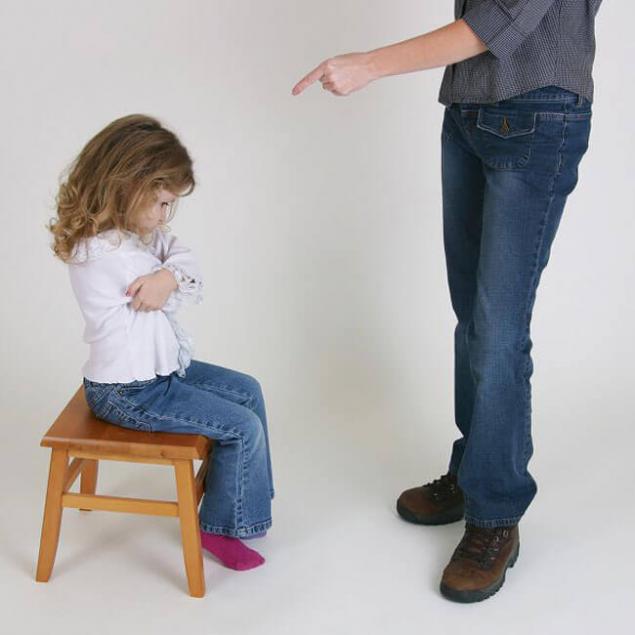
Most parents do not even notice how often they speak about the bad actions of the child. So the kids just won't listen to them. While the child showered with negative comments, you can't expect him cooperation.
Negative comments that make the child "deaf": "don't play with your food; when you finally grow up?; you're not a girl; you don't put my books on the shelf; you're too loud; don't hurt your sister; you have a disorder in the room; why do I always have to remind you to get that hat?; you don't listen; don't go; don't run around the apartment like crazy; if you keep this up, nobody will be friends; you didn't say "thank you," eat with your mouth closed; you watch too much TV; turn down the music, I have a headache; don't whine; there's nothing you can do as follows; this time try to remember; slow down, don't run so fast; do not be a fool; you cannot talk; so you have nothing; it's all your fault".
One of the common causes of bad behavior is the reaction of parents to disobedience. If the parents are paying much attention to the negative behavior, the children and continue to behave negatively. Punishments cause the child to a greater extent focuses on the negative behavior, not positive.
WHAT TO DO?
1. Pay more attention to the positive behavior of the child, then he often will behave positively and reward for positive behaviour.
2. Instead find fault child, "catch" him when he does something good.
3. For children aged 4 to 9 years make a map of the household responsibilities. At the end of the day, review the list and put asterisks on the contrary made a child duties. Agree that when he gets a certain number of stars (20-30), then for him You will do something good (twice read to him before bedtime; take on an interesting event). The success of the child maintain their positive emotions, enthusiasm, encouragement. If the child is not made of the duties, leave the relevant row blank, without any of Your negative emotional reactions.
4. Instead of focusing on the problems of the child better, encourage him to solve them yourself, guiding in the right direction. Here are some examples of how to guide the child.
Negative remark:"You're not listening". Guiding phrase: "Please listen to me carefully".
Instead of: "I want you to...", say "Do what I say, please."
Instead of: "Look how you're dressed", say, "Not if you'll wear a plaid shirt? She really looks good with these pants".
Instead of: "you will fail", say, "let's see, if we could do it another way"
Instead of: "don't be stupid", say "Let's do it again let us examine this in closer"
Instead of: "Go slow. Don't run", say "please Go slower".
Instead of: "stop whining" and say, "I would not like to talk about it anymore"
Instead of: "you're selfish!", say, "I want you to remember the rules of good taste".
Of course, parents must correct their children, but it should be less to focus on the negative characteristics of their actions and often give them the opportunity to improve behavior. Adjusting the child three times, praise him for positive behavior.
Children are people just like us, only little. published
Author: Zhurbenko, N. B.
P. S. And remember, only by changing their consumption — together we change the world! ©
Source: www.stranamam.ru/post/8997240/
In order to use any methods of influence on children let's try to understand the reasons for their bad behavior.
Communicating with parents about the behavior of their children, I noticed how much they are paying attention to their negative behavior. In the presence of the children they share it with their relatives, friends, talking in person or on the phone: "So loud", "After work, no rest, all the time stick to the issues," "Uncontrollable, all the time jumps, hung on the neck" etc. etc. And the child continues to behave this way, as if to justify the characterization that he is given.

Most parents do not even notice how often they speak about the bad actions of the child. So the kids just won't listen to them. While the child showered with negative comments, you can't expect him cooperation.
Negative comments that make the child "deaf": "don't play with your food; when you finally grow up?; you're not a girl; you don't put my books on the shelf; you're too loud; don't hurt your sister; you have a disorder in the room; why do I always have to remind you to get that hat?; you don't listen; don't go; don't run around the apartment like crazy; if you keep this up, nobody will be friends; you didn't say "thank you," eat with your mouth closed; you watch too much TV; turn down the music, I have a headache; don't whine; there's nothing you can do as follows; this time try to remember; slow down, don't run so fast; do not be a fool; you cannot talk; so you have nothing; it's all your fault".
One of the common causes of bad behavior is the reaction of parents to disobedience. If the parents are paying much attention to the negative behavior, the children and continue to behave negatively. Punishments cause the child to a greater extent focuses on the negative behavior, not positive.
WHAT TO DO?
1. Pay more attention to the positive behavior of the child, then he often will behave positively and reward for positive behaviour.
2. Instead find fault child, "catch" him when he does something good.
3. For children aged 4 to 9 years make a map of the household responsibilities. At the end of the day, review the list and put asterisks on the contrary made a child duties. Agree that when he gets a certain number of stars (20-30), then for him You will do something good (twice read to him before bedtime; take on an interesting event). The success of the child maintain their positive emotions, enthusiasm, encouragement. If the child is not made of the duties, leave the relevant row blank, without any of Your negative emotional reactions.
4. Instead of focusing on the problems of the child better, encourage him to solve them yourself, guiding in the right direction. Here are some examples of how to guide the child.
Negative remark:"You're not listening". Guiding phrase: "Please listen to me carefully".
Instead of: "I want you to...", say "Do what I say, please."
Instead of: "Look how you're dressed", say, "Not if you'll wear a plaid shirt? She really looks good with these pants".
Instead of: "you will fail", say, "let's see, if we could do it another way"
Instead of: "don't be stupid", say "Let's do it again let us examine this in closer"
Instead of: "Go slow. Don't run", say "please Go slower".
Instead of: "stop whining" and say, "I would not like to talk about it anymore"
Instead of: "you're selfish!", say, "I want you to remember the rules of good taste".
Of course, parents must correct their children, but it should be less to focus on the negative characteristics of their actions and often give them the opportunity to improve behavior. Adjusting the child three times, praise him for positive behavior.
Children are people just like us, only little. published
Author: Zhurbenko, N. B.
P. S. And remember, only by changing their consumption — together we change the world! ©
Source: www.stranamam.ru/post/8997240/






